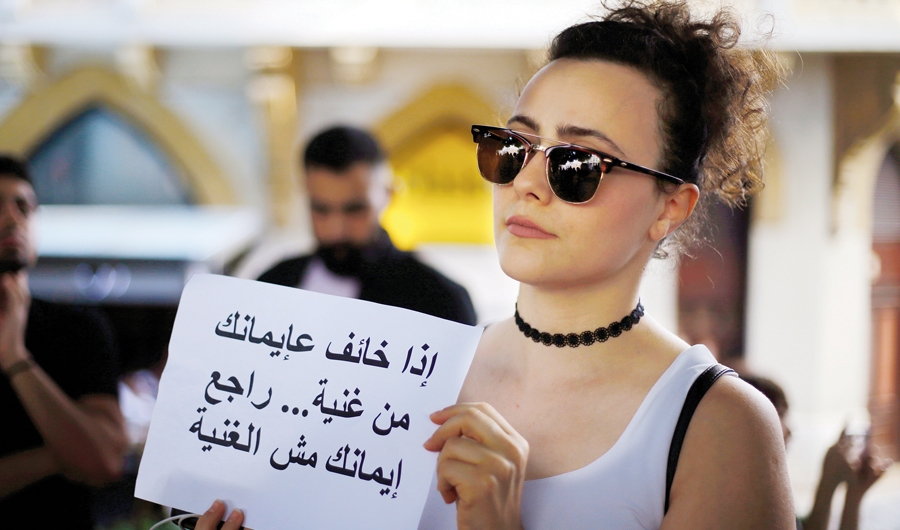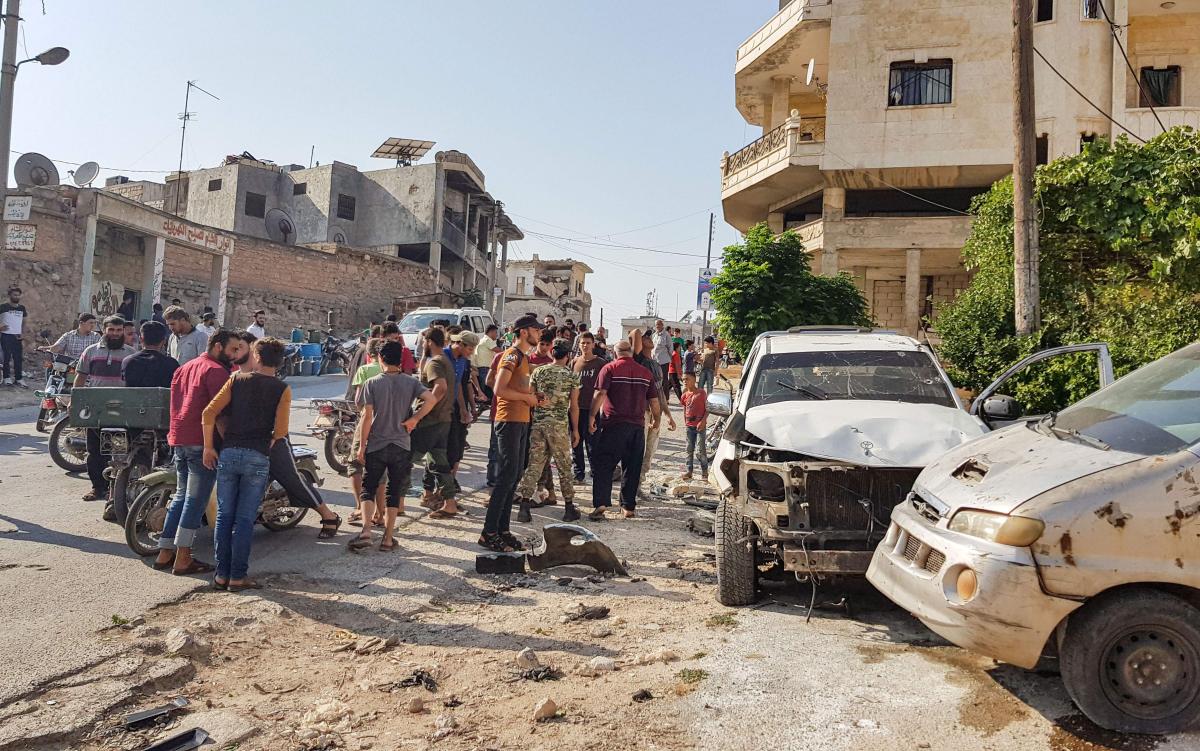BEIRUT: A Dutch band said on Sunday it had canceled its gig at a top Lebanon festival in solidarity with a Lebanese group pulled from the event after threats over alleged offense to Christians.
Within Temptation joined other activists in protest after festival organizers last week pulled Lebanese indie group Mashrou’ Leila from the program over fears of “bloodshed.”
The Dutch symphonic-rock outfit had been set to play on Wednesday at the event in the Christian-majority seaside town of Byblos.
“We have decided to cancel our show in Byblos in solidarity with Mashrou’ Leila and in support of tolerance, freedom of speech and expression,” they said in a statement on Facebook.
They made the decision after learning the festival had withdrawn Mashrou’ Leila from the program “due to security reasons after religious fanatics demanded their performance to be canceled followed by violent threats,” they said. Lebanese Christian clerics have accused Mashrou’ Leila, whose singer is openly gay, of offending Christians in two of their songs titled “Idols” and “Djin.”
Critics on social media also threatened to attack the concert if the Lebanese band went ahead with the performance on Aug. 9.
On Sunday, the festival’s artistic director said he was saddened to have lost another band but did not regret last week’s decision to cancel Mashrou’ Leila.
“We have never before canceled a performance … If we did it this time, albeit with an enraged heart, it’s because we absolutely had to.”
Naji Baz, Director, music festival
“The security of our artists and audience is our absolute priority,” Naji Baz told AFP.
“We have never before canceled a performance … If we did it this time, albeit with an enraged heart, it’s because we absolutely had to,” he said. Mashrou’ Leila has said it “sincerely regrets causing offense to anyone’s beliefs” but denied that any of its songs were religiously offensive.
Rights groups have denounced an increase in restrictions on freedom of expression, while activists and fans have protested in the street and online.
Religiously diverse Lebanon is one of the Middle East’s more liberal countries, but its myriad of recognized sects still wield major influence over social and cultural affairs.
Mashrou’ Leila has often played in Lebanon since forming in 2008 while its members were still students at the American University of Beirut.
But it has created waves in the religiously conservative Middle East.
After a Mashrou’ Leila concert in Egypt in 2017, at which members of the audience waved a rainbow flag, Egyptian authorities launched a crackdown on the country’s LGBT community.
Its concerts in Jordan were canceled in 2016 and 2017.






